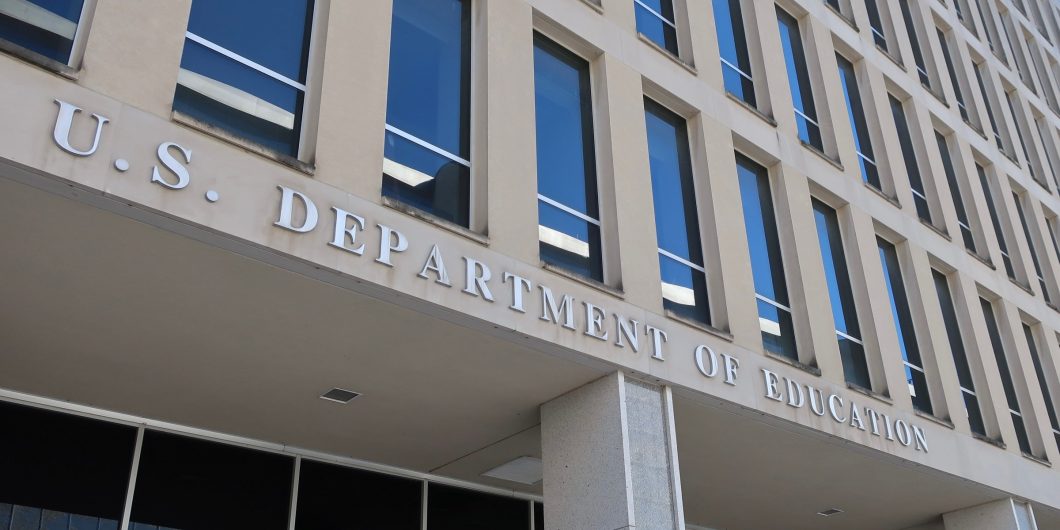The Due Process Brick Wall
Because Joe Biden made campus sexual assault a signature issue when he was vice president, feminists hope for a return to the era when students who were accused of sexual misconduct were presumed guilty. Back then, school officials routinely withheld information and evidence. And administrators insisted that complainants could not be questioned lest they be re-traumatized. All of this facilitated colleges arriving at thinly supported “findings” of sexual assault, even in cases where it seemed wildly implausible that any assault had occurred. Those “findings,” however, gave colleges the chance to claim they were tough on this crime.
But a return to this past of evidence-free, due-process deficient guilty verdicts is not possible.
Feminists who are now focused on un-doing the new Trump Title IX regulation face a new barrier, one that the Obama-appointed Office for Civil Rights (OCR) never encountered: the courts. In the years since Catherine Lhamon headed Obama’s OCR and issued her notorious extra-legal Dear Colleague Letter (“DCL”) reducing due process protections, numerous suits have been brought by former students aggrieved that their rights had been trampled. In many of these cases, the plaintiffs have prevailed and we now have a substantial body of case law that cuts against practices adopted under the Lhamon directive.
The DCL opened the gate to abuses in the form of college “Title IX investigators” who often ignored the rights of the accused. Former Education Secretary Betsy DeVos took on the difficult project of developing actual regulations to remove these excesses by rescinding the DCL in 2017 and recentering enforcement of Title IX on the actual letter of the law, which ensures equal access to education free of sex discrimination.
Biden’s appointees will almost certainly do their best to skirt this DeVos reform, but they will now find several appellate court opinions stand in their way. It turns out that the DeVos rule is just one brick in a much larger brick wall of required fundamental fairness. That means that campus due process must be respected even in the new, Lhamon-leaning Biden administration. Schools hoping to avoid lawsuits should take note.
In fact, the scope of Title IX due process protections is now primarily with these federal courts, which themselves recognize other, long-standing authorities in support of due process basics. These sources include state common law, state administrative codes and also traditional treatises such as Black’s Law Dictionary. All of these inform the meaning of the word “fairness,” guaranteed not only in agency rules but also in school conduct codes that apply to students, faculty, and staff.
In sum, schools can no longer cut corners when it comes to the due process rights of students accused of Title IX sexual misconduct, whatever the fate of the Trump rule.
The most significant such federal case to interpret a student code was last year’s Third Circuit opinion in John Doe v. Philadelphia University of the Sciences. There the court looked to state jurisprudence, the Pennsylvania Administrative Code, legal dictionaries, and other circuit opinions to understand the meaning of “fairness” guaranteed in the Student Handbook. It found that it meant “in accordance with due process” which, according to these sources, must include live hearings and cross examination, both of which were unlawfully denied to John Doe. The court emphasized that both the Sixth and Seventh Circuits had defined fairness and due process similarly, the latter in an opinion written by now Supreme Court Justice Amy Barrett.
Significantly, none of these opinions involved the new Trump/DeVos rule. Yet all confirmed the obligation of schools to observe basic due process rights in their disciplinary adjudications—including at private schools, such as the Philadelphia University of the Sciences. The court reminded, “As a private university, U Sciences is not subject to the Constitution’s due process guarantees. Nevertheless, we observe that federal notions of fairness in student disciplinary proceedings are consistent with those recognized in Pennsylvania’s jurisprudence. They require … the basic elements of federal procedural fairness [including] … the opportunity for cross-examination of witnesses,” among other things.
In sum, schools can no longer cut corners when it comes to the due process rights of students accused of Title IX sexual misconduct, whatever the fate of the Trump rule.
The claim that these cases deserve special treatment because they involve private conduct with few witnesses is commendably addressed, however, by the new rule’s requirement that complainants must be offered supportive measures such as counseling, deadline extensions, and campus escorts– but not any compromise in due process protection for those they accuse.
Interestingly, courts have also ended up using the DCL, and the culture it created, against schools, as proof of illegal bias against male students, when combined with other evidence of pressure to be tough on sexual assault. The Third Circuit explained: “[U]niversity overreaction to DoEd or other public pressure is relevant to alleging a plausible Title IX discrimination claim.” It then noted that U Sciences failed to investigate confidentiality breaches by the female complainant and also that both Doe and Roe were “comparably intoxicated” and therefore both were less able to provide real consent to sex. School officials never inquired, however, if the complainant had initiated relations without Doe’s consent. Considering this, along with the DCL and its pressures, the Court concluded, “Doe plausibly alleges that U Sciences enforced the Policy against him alone because of his sex.”
Another issue raised by the DCL culture and hopefully soon to be addressed by the courts is the overbroad application of Title IX to crimes rather than educational access, a highly questionable and enormous expansion of power and jurisdiction of the Title IX office. As a recent Report found, the purpose of educational access now “appears to be completely lost on Title IX offices,” which focus, instead, on student sexual encounters gone bad. The DCL culture meant that the Title IX office began to neglect the jurisdiction it does have—over educational opportunity—while exercising jurisdiction it was never intended to have—over crimes. In practice, Title IX staff are now more sex monitors than access monitors.
Thankfully, the days of this arbitrary and even discriminatory Title IX administration are coming to a close because of the case law in favor of due process. The last word is no longer with the campus Title IX office, or the Oval Office, but is instead with controlling federal appellate authority. And university counsel must advise their institutions accordingly.


